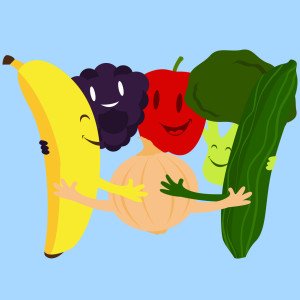Choosing a Plant-Based Diet: Part Two
 Vital Nutrients: Eating more foods that come from plants is an excellent way to promote health. However, a plant-based vegan diet that avoids animal products isn't automatically healthful. To build a healthful plant-based diet, choose a variety of foods, emphasizing the ones that contain essential nutrients.5 Tips for a Healthful Vegan Diet: Include protein with most meals and snacks. Plant foods that are highest in protein include nuts, seeds, nut butters, legumes and soy foods like tempeh, tofu and edamame. Choose a variety of different types of protein foods throughout the day.Focus on foods that contain iron, an essential nutrient that carries oxygen in our bloodstream. Iron sources for vegetarians and vegans include iron-fortified breakfast cereals, spinach, kidney beans, black-eyed peas, lentils, turnip greens, molasses, whole wheat breads, peas, and some dried fruits like apricots, prunes, and raisins (1).Choose foods high in calcium to maintain strong bones and teeth. Vegan sources of calcium include calcium-fortified beverages and breakfast cereals, tofu made with calcium sulfate, and some dark-green leafy vegetables like collard greens, turnip greens, etc.Zinc is an essential mineral for a healthy immune system. Eat white beans, kidney beans, and chickpeas, then look for zinc-fortified breakfast cereals. You can also sprinkle wheat germ onto salads and snack on pumpkin seeds.Vitamin B12 is found only in animal products, and consistently low intake of B12 can lead to anemia and damage to your nervous system. Buy breakfast cereals with added B12, along with veggie burgers, nutritional yeast, and fortified milks like soy, almond and rice milk (2).By Lynn Grieger, RDN, CDE, CPT, CWC References
Vital Nutrients: Eating more foods that come from plants is an excellent way to promote health. However, a plant-based vegan diet that avoids animal products isn't automatically healthful. To build a healthful plant-based diet, choose a variety of foods, emphasizing the ones that contain essential nutrients.5 Tips for a Healthful Vegan Diet: Include protein with most meals and snacks. Plant foods that are highest in protein include nuts, seeds, nut butters, legumes and soy foods like tempeh, tofu and edamame. Choose a variety of different types of protein foods throughout the day.Focus on foods that contain iron, an essential nutrient that carries oxygen in our bloodstream. Iron sources for vegetarians and vegans include iron-fortified breakfast cereals, spinach, kidney beans, black-eyed peas, lentils, turnip greens, molasses, whole wheat breads, peas, and some dried fruits like apricots, prunes, and raisins (1).Choose foods high in calcium to maintain strong bones and teeth. Vegan sources of calcium include calcium-fortified beverages and breakfast cereals, tofu made with calcium sulfate, and some dark-green leafy vegetables like collard greens, turnip greens, etc.Zinc is an essential mineral for a healthy immune system. Eat white beans, kidney beans, and chickpeas, then look for zinc-fortified breakfast cereals. You can also sprinkle wheat germ onto salads and snack on pumpkin seeds.Vitamin B12 is found only in animal products, and consistently low intake of B12 can lead to anemia and damage to your nervous system. Buy breakfast cereals with added B12, along with veggie burgers, nutritional yeast, and fortified milks like soy, almond and rice milk (2).By Lynn Grieger, RDN, CDE, CPT, CWC References
- Tips for vegetarians. http://www.choosemyplate.gov/healthy-eating-tips/tips-for-vegetarian.html Accessed 10-20-13
- How prevalent is vitamin B(12) deficiency among vegetarians? Pawlak R, Parrott SJ, Raj S, Cullum-Dugan D, Lucus D. Nutr Rev. 2013 Feb;71(2):110-7.
